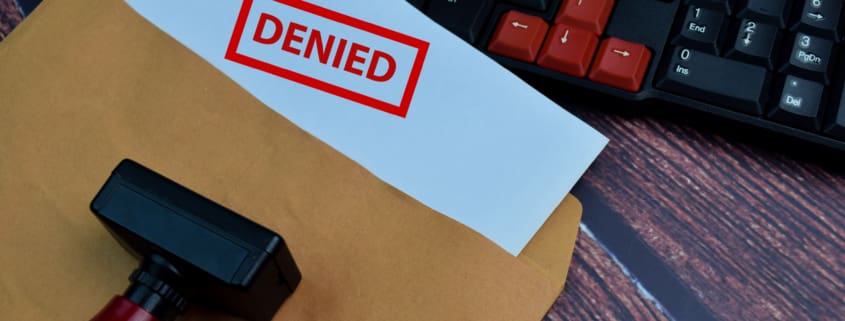The CPA’s Guide to Helping a Client with an SBA PPP Loan Forgiveness Denial
When the COVID-19 pandemic wreaked havoc on small businesses, the U.S. government stepped in to offer some relief in the form of SBA PPP (Paycheck Protection Program) loans. Those loans were designed to help businesses keep their doors open and their employees on the payroll. However, even with the best of intentions, there were bound to be some complications when it came to forgiveness. If your client has had their SBA PPP loan forgiveness denied, here’s what you need to know.
The Role of the CPA
While CPAs are not allowed to represent clients or file an appeal with the OHA (Office of Hearings and Appeals) on SBA forgiveness denials, they play a critical role in the process. The CPA has knowledge of how the company works, knows where the records are, and can help reconcile everything. In all cases, including the CPA in the appeal is essential, as it ensures that the information submitted to OHA is accurate.
Three Things You Can Do to Help Your Client
If your client has been denied loan forgiveness, there are three things you can do to help them prepare for an appeal, whether they decide to represent themselves or hire an attorney.
Reconcile Payroll Records
The first thing to do is to reconcile payroll records. Make sure that the gross wages reported on the payroll returns match the federal income tax returns, W-2s, W-3s, and payroll journal. If any of these numbers do not match, it could be due to an amended quarterly payroll return that was not reflected on the general ledger, for example. It is essential to ensure that all the numbers match before submitting an appeal.
Exclude Wages Over $100,000
Only wages of $100,000 or less are eligible for the PPP loan. To calculate the PPP loan amount, add up the gross wages, state unemployment insurance tax, and employee benefits, such as health insurance, 401k contributions, and uniforms (if required and paid for by the employer). Calculate the average monthly payroll costs for 2019, divide by 12, and multiply by 2.5. For the hospitality industry, this number can be multiplied by 3.5, as per SBA regulations.
Confirm the Right Party Is Reporting the Wages
If a company used a PEO (Professional Employer Organization), confirm that the wages are reported under the PEO’s EIN (Employer Identification Number). However, if the wages were reported under a management company’s EIN, it becomes more complicated. In this case, it is crucial to review the hotel management agreement and determine whose employees they were. If there was a co-employer relationship, the management company and hotel owner could both be held responsible for the employees. If SBA sees that the management company is responsible, the PPP loan forgiveness could be denied, and the client might have to repay the full amount back. It is essential to explore this scenario and present it legally in an appeal to the SBA.
Additional Considerations
If your client has a PPP2 loan, they must have applied for and received a PPP1 loan to qualify. They must also have had a reduction in gross income in 2020, either in a specific quarter or a 25% or greater reduction in year-end income. It is also important to consider the affiliation rules if the company has multiple owners or investors. You must get a total count of employees, including any employees from other companies owned by the investors. You must ensure that there is no control from any one common investor or shareholder who owns other businesses.
Conclusion
The SBA PPP loan forgiveness process can be complicated, and denial can have serious financial consequences for small businesses. As a CPA, you can play a critical role in helping clients prepare for an appeal by reconciling payroll records, excluding wages over $100,000, and confirming the right party is reporting the wages. It is also important to consider additional factors such as PPP2 eligibility and affiliation rules. While CPAs cannot represent clients in appeals with the OHA, their expertise can help ensure that accurate information is submitted, improving the chances of a successful outcome. With the right preparation, small businesses can navigate the forgiveness process and emerge from the pandemic with a solid financial footing.



